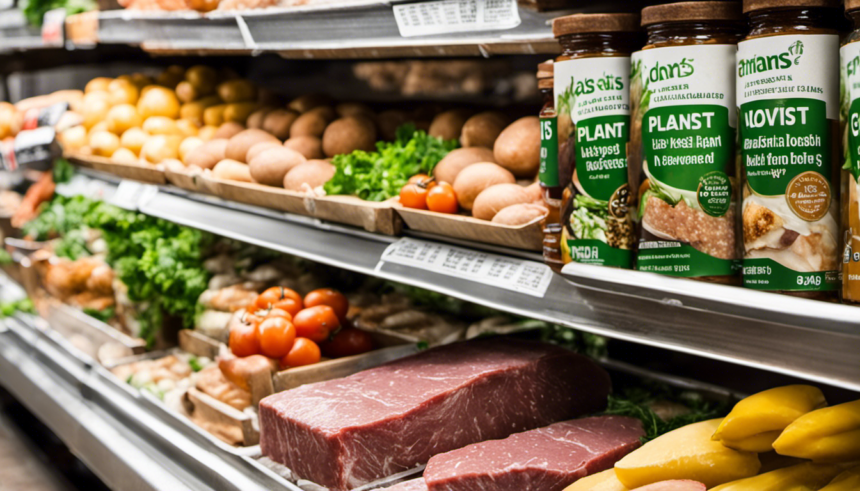French Government Restricts Plant-Based Product Labels, Sparking Debate
The French government has issued a decree restricting the use of certain words on plant-based product labels, including “steak,” “fillet,” and “ham.” The move, which aims to clarify labeling for consumers, has sparked controversy among plant-based producers and advocates.
The decree, which comes into effect in three months, bans the use of 21 terms, including meat-related words, on plant-based product packaging. Violators face fines of up to €1,500 for individuals and €7,500 for companies. Producers will have a year to clear their existing inventory containing meat labels.
The meat industry has argued that marketing plant-based products as meat may mislead consumers, while critics claim that the move is an attempt to disadvantage plant-based competitors. French producers of plant-based products have opposed the new label restrictions, saying that consumers can tell the difference between products labeled as “steak” versus “veggie steak.”
The debate over plant-based labeling has been escalated to the European Court of Justice, but the French government has proceeded with its new regulations before a ruling has been made.
Across the European Union, words like “milk,” “butter,” and “yogurt” are not allowed to be used to label plant-based dairy alternatives, even if they are qualified with terms like “plant-based” or “vegan.” In 2020, the EU rejected a proposal to ban plant-based products from using descriptors commonly associated with meat, such as “burger” and “sausage.”
In the United States, there is currently no federal ban on the labeling of plant-based products with meaty descriptors. However, several states have issued their own rules. Missouri, Oklahoma, and Kansas have banned the use of certain meat-related words on plant-based product labels, while Texas requires labels for alternative meat products to include descriptors like “meatless,” “plant-based,” or “analogue.”
The U.K. is considering introducing additional restrictions on labeling for more plant-based products, including bans on words that sound like dairy items. Australia and New Zealand have also been caught in the fierce tussle between the meat industry and plant-based proponents over what to call plant-based products.
In Italy, a bill to ban meat-related labeling for plant-based products was passed in November, but the move sparked outcry, with critics arguing that it would instead introduce confusion among consumers. In China, there are no mandatory regulations surrounding the labeling of plant-based products, but a voluntary standard was published


Leave a Reply